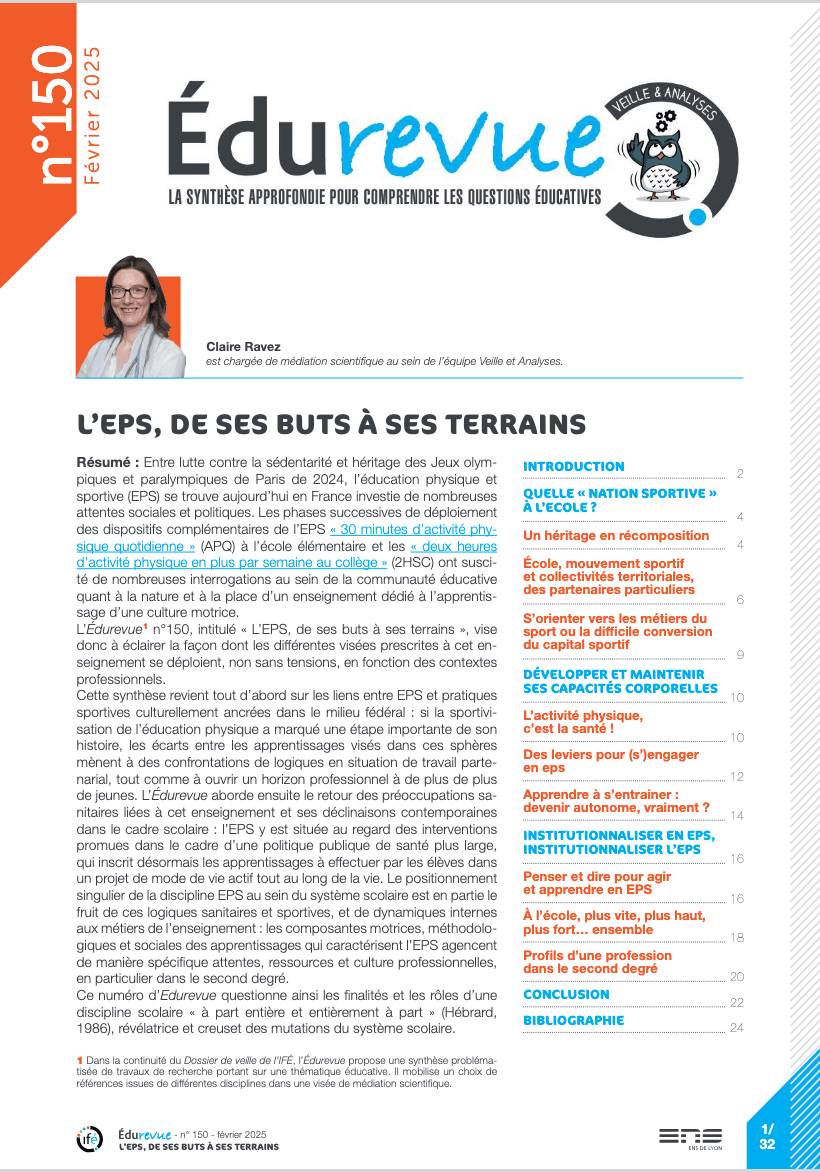Université Virtuelle Africaine : le paradoxe du processus d’industrialisation de l’enseignement supérieur en Afrique Subsaharienne
Auteur(s) : LENDRIN Helga
Date de soutenance : 2021
Thèse délivrée par : Université de Technologie de Compiègne
Section(s) CNU : section 70 : Sciences de l'éducation, section 71 : Sciences de l'information et de la communication
Sous la direction de : Jérôme VALLUY & Olivier AïM
Jury de thèse : Serge Bouchardon ; David Flacher ; Alain Kiyindou ; Joëlle Le Marec ; Luc Massou ; Milie Théodora Miere
Pourquoi financer le déploiement d'une technologie là où, faute d'infrastructures, celle-ci ne peut matériellement pas fonctionner correctement ? Si les objectifs avancés par la Banque mondiale, à l'origine du lancement de l'Université Virtuelle Africaine (UVA) en 1997, sont l'augmentation de l'accès à l'enseignement supérieur en Afrique couplée à des économies d'échelles, la question se pose de savoir quelle démocratisation est espérée lorsque le moyen qui doit la rendre possible ne peut tout simplement pas fonctionner par manque d'infrastructures. En s'appuyant sur le concept d'« hypertélie » développé par Gilbert Simondon (1958) pour désigner la suradaptation d'un objet technique dans un milieu inadapté à son fonctionnement, cette recherche doctorale propose d'appréhender le lancement de l'Université Virtuelle Africaine (UVA) comme une introduction anticipée des TIC et de la culture numérique par la Banque mondiale au sein d'universités traditionnelles d'Afrique subsaharienne avec pour objectif la mise en marché de l'enseignement supérieur. Objectif soutenu par la transformation de l'UVA en organisation intergouvernementale qui génère un mythe (Barthes, 1957 ; Simondon, 1958) caractérisé par la séparation entre une forme première et son fond idéologique, qui, ainsi libéré, peut se fixer à d'autres formes, s'articuler à d'autres fonds, et devenir une tendance générale. L'UVA acquiert ainsi une raison d'être : constituer une forme mythique capable de véhiculer des concepts qui se transforment en tendances sous forme de structures.
African Virtual University : the paradox of the industrialization process of higher education in Sub-Saharan Africa
Why fund the deployment of a technology where, due to lack of infrastructure, it cannot physically function properly? If the objectives put forward by the World Bank, at the origin of the launch of the African Virtual University (AVU) in 1997, are to increase access to higher education in Africa coupled with economies of scale, the question arises as to what democratisation is hoped for when the means that should make it possible simply cannot function due to lack of infrastructure. This is evidenced by the failure of the AVU in economic and pedagogical terms (Loiret, 2007), in contrast to its continued development through its transformation into a pan-African intergovernmental organisation in 2002. Based on the concept of 'hypertelia' developed by Gilbert Simondon (1958) to designate the over-adaptation of a technical object in an environment unsuited to its functioning, this doctoral research proposes to understand the launch of the African Virtual University (AVU) as an anticipated introduction of ICTs and digital culture by the World Bank within traditional universities in sub-Saharan Africa, with the objective of commodising higher education. This objective is supported by the transformation of the AVU into an intergovernmental organisation which generates a myth (Barthes, 1957; Simondon, 1958) characterised by the separation of a primary form from its ideological background, which, thus liberated, can be attached to other forms, articulated to other backgrounds, and become a general trend. The AVU thus acquires a reason to be : to constitute a mythical form capable of conveying concepts that are transformed into tendencies in the form of structures.
URL : https://tel.archives-ouvertes.fr/tel-03770242
mot(s) clé(s) : économie de l'éducation, technologie éducative












